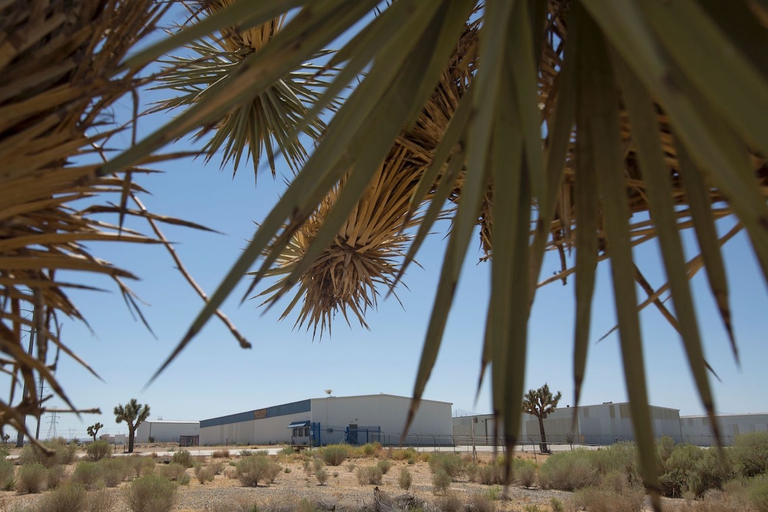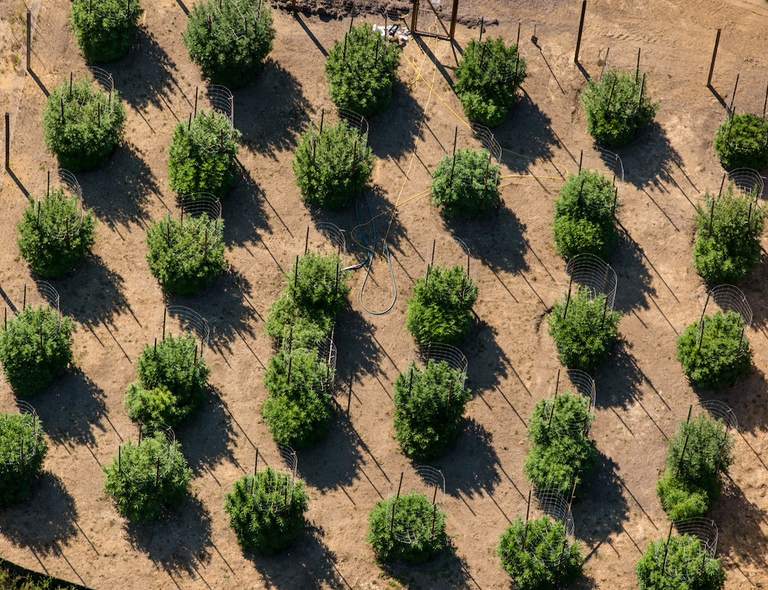
Renzo Piano’s archive in Genoa houses the great architect’s projects. It brings young people closer to creative work, which he equates to “looking into darkness without fear”.
Damian Marley is transforming a prison into a marijuana plantation to give more than one hundred ex-prisoners a job.
Damian Marley, the youngest son of raggae superstar Bob Marley, announced that he’s running a very ambitious project. Partnered with Ocean grown extracts, Marley wants to set up a marijuana farm on land that was once the Claremont custody center, California State prison. The farm will cover an area of more than 7,000 square metres and produce cannabis for therapeutic use.
According to estimates by the American media that reported this piece of news, the operation could yield a return of millions of dollars, also given that Californian citizens are called to vote on the so-called Proposition 64 on 8 November, the law that allows adults to possess, purchase and cultivate cannabis, also for recreational use.
But Damian’s project has obviously other major purposes. By purchasing the former prison for more than four million dollars, Marley and his partner have solved most of the community of Coalinga’s financial problems, paying off the public debt of more than three million dollars.
Secondly, his business will create more than one hundred jobs in an economically stagnant region, which is bearing the consequences of the oil price drop and is having several droughts that strongly damaged the traditional farming industry.
Damian’s dream is to offer ex-prisoners new jobs to bring them a new future and the opportunity to find their place in society. Damian said about his project:
Many people sacrificed so much for the herb over the years who got locked up. If this venture helps people and it’s used for medicinal purposes and inspires people, it’s a success.
Marley’s new farm will begin producing oil extracts in sixty days and will harvest its first crop in January. Marley was asked if he expected that one day cannabis plantations would have been legalised and answered:
I didn’t know it would happen this way. This was definitely something we were working towards for a long time, before I was even born. There was Peter Tosh’s ‘Legalize It’ and songs like that – this is something our culture has been working towards. I was optimistic that it would one day be legal, and now it is here.
Siamo anche su WhatsApp. Segui il canale ufficiale LifeGate per restare aggiornata, aggiornato sulle ultime notizie e sulle nostre attività.
![]()
Quest'opera è distribuita con Licenza Creative Commons Attribuzione - Non commerciale - Non opere derivate 4.0 Internazionale.
Renzo Piano’s archive in Genoa houses the great architect’s projects. It brings young people closer to creative work, which he equates to “looking into darkness without fear”.
The 50th anniversary of the Moon landing on 20 July has awakened the fantasy of many. Here’s the perfect playlist of musicians who have let themselves be inspired by the universe and its celestial bodies.
N’we Jinan is a Canadian record label that gives First Nations students their voice back by allowing them to create their own music in mobile recording studios.
The Australian songwriter, who became famous with Follow the Sun, is back with Walk Away, a new and powerful ode to freedom. He’s about to set off on a world tour. Our interview with Xavier Rudd.
Three teenagers from New Zealand sing in the Maori language about abuse at the hands of British colonisers. Thanks to their thrash metal music, young people are being attracted to native culture.
There’s no room for anger, resignation, or desire for revenge in this playlist. There’s just the moral obligation of retracing and telling the stories that can’t go lost and forgotten all over again. We do so through music.
Le canzoni più belle del 2017 secondo LifeGate Radio. Con questa playlist lanciamo la nostra collaborazione con Spotify Italia che vi farà ascoltare la musica migliore, selezionata.
An organisation that unites over 1,000 mainly Maya women in Guatemala has expressed alarm that indigenous handicrafts, textiles called “huipiles” in particular, are under threat because underpriced industrial fabrics appropriating indigenous patterns have flooded the Guatemalan market, depriving many native women of their main source of income. Read more: Down to Xjabelle, the fashion collection by a young designer with Down
Rwandan creatives share a common dream: they want to use their art to bring about positive change in society, as well as put their country on the map. They’re mostly young, ambitious, self-taught and have a strong desire and determination to challenge mentalities, move forward and grow. In her documentary RWANDArt: A new creative generation, which










